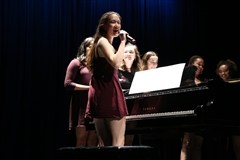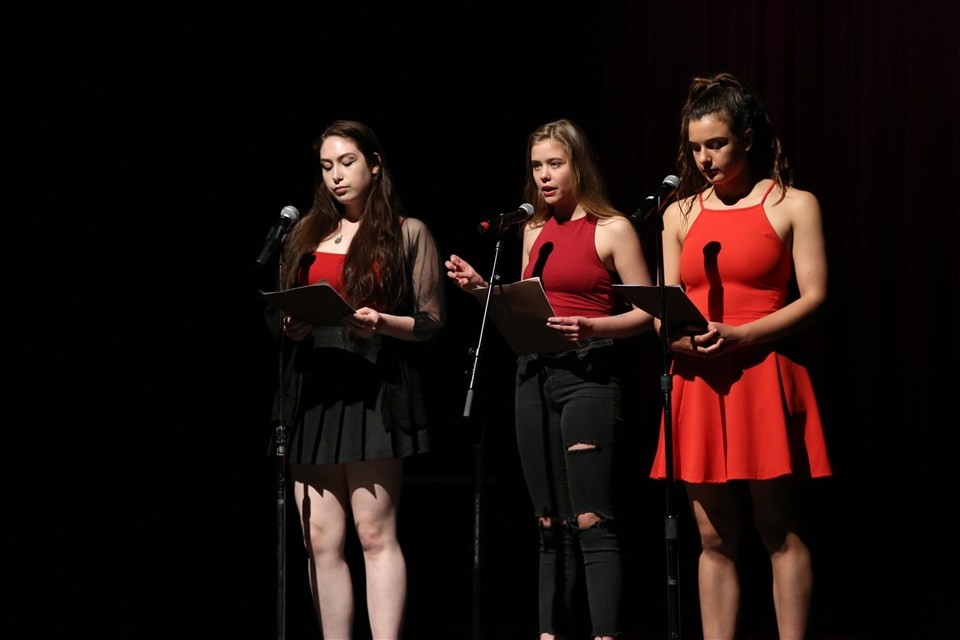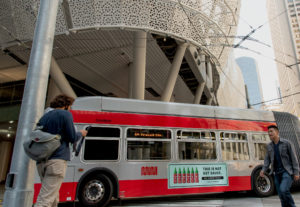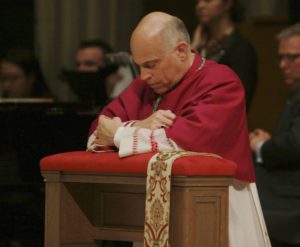
Lick-Wilmerding Organization of Women’s work culminates yearly on the night of Girl Talk. This variety show offers a safe space for students who identify or who have identified as women to share their voices and stories with the rest of the community. GirlTalk is a performance that has both a rich and a complicated past, present and future.
For five years before the founding GirlTalk, LWOW presented The Vagina Monologues, a series of monologues written by Eve Ensler that discuss the multiplicity of the female experience. In 2015, LWOW created GirlTalk to take the place of the monologues; students and faculty wanted to create a space where students own voices and work could be celebrated. Over the last four years, SWEAR (the Urban School’s equivalent of LWOW) has joined LWOW on the stage of the Ehrer theater. As of last year, all work was read anonymously. A performer cannot perform their own monologue.
Although the potential negatives of the anonymity of the show are often debated, past LWOW leaders made a purposeful choice in disallowing students from reading their own monologues. Marley Pierce, a previous faculty advisor for LWOW, remembers, “It was the leaders that were pushing anonymous, anonymous, anonymous.” Kate Wiley echoes Pierce’s point. “The GirlTalk guidelines were created in conjunction with the LWOW adult club moderator and the counseling department. So, for example, when the first GirlTalk happened, that leadership in conjunction with counseling wanted to keep the aspect of the Vagina Monologues, where a person is reading the voice of another (in this case Eve Ensler). I also know there was discussion about having them be anonymously read both for safety and equity reasons.”
However, despite the good intentions behind the anonymity of GirlTalk, there has been feedback from members of LWOW who identify as women of color that they would like to read their own monologues or have their monologues read by another woman of color due to the specificity of their work. This request is a legitimate one, and the current LWOW leaders, in conjunction with Dr. Nikkia Young and Kate Wiley, have created a system where writers who identify as women of color can specify whether or not they would like to have their monologue read by another a woman of color.
This ongoing discussion about who should deliver women of color’s monologues stems from years of discussion about the differences between white feminism and intersectional feminism in LWOW and GirlTalk. In past years, many members of the LWHS community have noticed that LWOW has been primarily centered around the experiences of white feminists instead of practicing intersectional feminism. Dr. Young states that each year she encounters some women in LWOW talking about how they are silenced by men while simultaneously silencing and talking over girls of color. Kate Wiley similarly says that in past years she has had several conversations with white members of LWOW who have asked to read their own monologues. However, Wiley noticed that “the conversations I had with those white women were never about how the anonymity affected their fellow classmates of color — we as white women need to be aware that we experience white privilege. It is the essence of white privilege to use the experiences of POC women who want ownership of their own written work as a means to achieve a long-standing, majority white female wish to read one’s own piece.” Dr. Young added, “What I think many well-meaning white students who identify as women or girls don’t realize is that this empathetic disconnection and lack of true regard for the subjectivity of their classmates of color can foster a racially hostile environment, instead of fostering mutual support and sisterhood. This takes place every day, not just in LWOW meetings. The LWOW leaders have put a lot of effort into this, but it’s not just about them.” Conversations about the differences between white feminism and intersectional feminism and inclusivity within LWOW have been going on for years among some members of the LWHS community, but in the past leaders and members of LWOW alike have largely glossed them over. However, the current LWOW leaders have made it clear that making LWOW a safer and more inclusive environment for women of color is one of their top priorities for this coming year.
In addition to the rules around anonymity, LWOW is putting new protocols in place for this coming GirlTalk in response to the disorganization that plagued the show last year. This year, a potential performer or writer for GirlTalk must attend six specific LWOW meetings that will explain the mission of the show, the guidelines that exist, and will begin discussions of what makes a strong performance piece. These sessions will also include spaces for peer editing and will help to ensure that all written submissions are performance ready before they are submitted.
Sabrina McFarland ’19, a current LWOW leader, says that last year, the LWOW leaders “were bending over backwards to allow people to be able to perform or to be able to write, but it wasn’t a half and half relationship. People weren’t showing up, people were leaving us hanging. We had to put on a show, and we needed certain things to be done, and people still expected to be in the show when they didn’t show up to anything.”
The lack of effort on the part of some participants in the show lead to poorly prepared performances, monologue submissions weeks after the deadline, and the leaders assigning monologues at the last minute. This year, the leaders agreed that they needed a new system to figure out who was actually interested in participating in the show. Overall, more rigorous preparation will help to ensure that all performers and writers commit the necessary time and effort to creating high-quality and moving performances.
Looking towards the future of LWOW and GirlTalk, Dr. Young will be heading a group created with the intention of providing a space to discuss topics like sexual violence and harassment that come up during GirlTalk each year. Dr. Young acknowledges the lack of spaces where people who have experienced sexual violence can have their experiences acknowledged. That, combined with her desire to create a safe space for students of all genders to gather, meet, and build community to broaden support networks and build allyship, inspired her to create the new space. In general, Dr. Young expressed a strong wish for students involved in GirlTalk to continue the conversations that are created by GirlTalk in a healthy and supportive way.
With the addition of these new protocols for the show, coupled with renewed focus on capturing the diverse experiences and voices within the community of women at LWHS, GirlTalk has the potential to become a space where every story of being female is listened to and valued.






